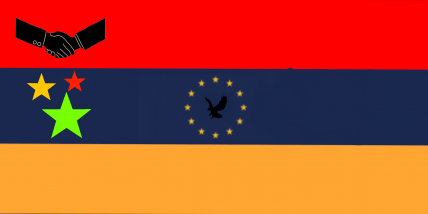

![]() by Lenzum » Wed Jan 06, 2021 1:08 pm
by Lenzum » Wed Jan 06, 2021 1:08 pm

![]() by Trenaka » Wed Jan 06, 2021 1:28 pm
by Trenaka » Wed Jan 06, 2021 1:28 pm
Trenakan National News: Trenaka withdraws from the GENA, joins the IFC -:- King Frederick II dissolves Parliament, calls new election on Chancellor Friedel’s request.

![]() by Vallermoore » Wed Jan 06, 2021 6:50 pm
by Vallermoore » Wed Jan 06, 2021 6:50 pm

![]() by Great Nortend » Wed Jan 06, 2021 7:47 pm
by Great Nortend » Wed Jan 06, 2021 7:47 pm

![]() by Slaver Pirates of Vaas » Wed Jan 06, 2021 8:06 pm
by Slaver Pirates of Vaas » Wed Jan 06, 2021 8:06 pm

![]() by Tinhampton » Wed Jan 06, 2021 8:12 pm
by Tinhampton » Wed Jan 06, 2021 8:12 pm
Tinhampton wrote:Well, for the most part, some bloke just proposes it in the Assembly, we pass it and the Mayor affixes his signature (if he doesn't, two-thirds of the Assembly may override the veto.) But if you want the reality, for the most part...

![]() by Deacarsia » Wed Jan 06, 2021 8:57 pm
by Deacarsia » Wed Jan 06, 2021 8:57 pm

![]() by Ru- » Wed Jan 06, 2021 11:21 pm
by Ru- » Wed Jan 06, 2021 11:21 pm

![]() by The Union of British North America » Wed Jan 06, 2021 11:31 pm
by The Union of British North America » Wed Jan 06, 2021 11:31 pm

![]() by Lancov » Thu Jan 07, 2021 12:27 am
by Lancov » Thu Jan 07, 2021 12:27 am

![]() by Aikoland » Thu Jan 07, 2021 12:13 pm
by Aikoland » Thu Jan 07, 2021 12:13 pm

![]() by Auzkhia » Fri Jan 08, 2021 9:35 am
by Auzkhia » Fri Jan 08, 2021 9:35 am

![]() by Lukhia » Fri Jan 08, 2021 9:59 am
by Lukhia » Fri Jan 08, 2021 9:59 am

![]() by Republic of La Boca » Fri Jan 08, 2021 1:40 pm
by Republic of La Boca » Fri Jan 08, 2021 1:40 pm

![]() by Bigpipstan » Mon Sep 06, 2021 9:39 am
by Bigpipstan » Mon Sep 06, 2021 9:39 am

![]() by Loungdako » Mon Sep 06, 2021 1:50 pm
by Loungdako » Mon Sep 06, 2021 1:50 pm

![]() by Radiatia » Tue Sep 07, 2021 1:52 am
by Radiatia » Tue Sep 07, 2021 1:52 am

![]() by Engadine Mcdonalds 1997 » Tue Sep 07, 2021 2:05 am
by Engadine Mcdonalds 1997 » Tue Sep 07, 2021 2:05 am

![]() by Achaean Republic » Tue Sep 07, 2021 2:08 am
by Achaean Republic » Tue Sep 07, 2021 2:08 am

![]() by The Hazar Amisnery » Tue Sep 07, 2021 2:09 am
by The Hazar Amisnery » Tue Sep 07, 2021 2:09 am

![]() by Moocow123450 » Tue Sep 07, 2021 7:36 pm
by Moocow123450 » Tue Sep 07, 2021 7:36 pm

![]() by Bagong Luzon » Thu Sep 16, 2021 4:29 am
by Bagong Luzon » Thu Sep 16, 2021 4:29 am

![]() by Haneke » Thu Sep 16, 2021 8:22 am
by Haneke » Thu Sep 16, 2021 8:22 am

![]() by The United Colonies of Earth » Thu Sep 16, 2021 11:38 am
by The United Colonies of Earth » Thu Sep 16, 2021 11:38 am
Advertisement
Return to Factbooks and National Information
Users browsing this forum: South Akia, Taliin
Advertisement